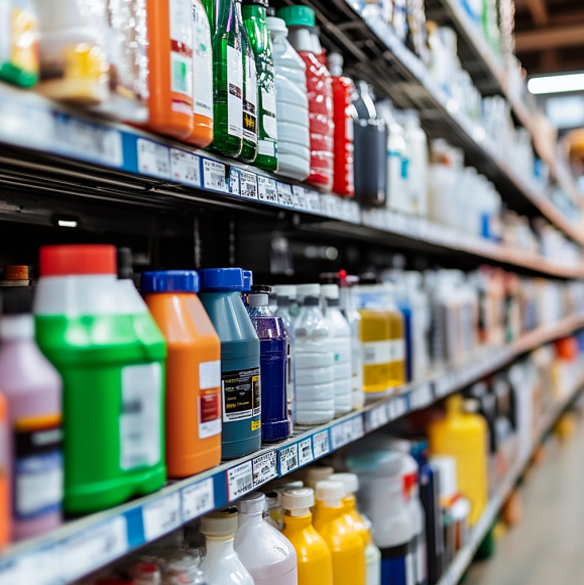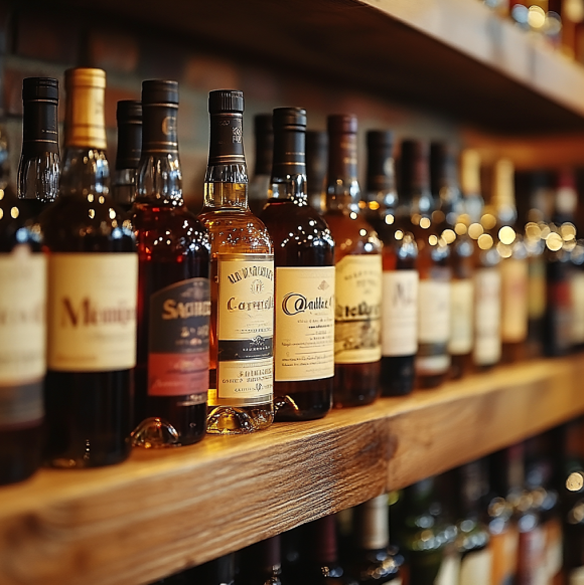Views: 0 Author: Site Editor Publish Time: 2025-03-19 Origin: Site









In the dynamic realm of packaging, the selection of label materials plays a pivotal role in product presentation, durability, and consumer appeal. Among the myriad of options available, PVC Film Label Material emerges as a superior choice for industries seeking a blend of aesthetics and functionality. This article delves into the intrinsic advantages of PVC film label material in packaging, exploring its properties, applications, and the value it adds to products across various sectors.
Polyvinyl Chloride (PVC) is a versatile thermoplastic polymer widely used in various applications due to its durable nature and cost-effectiveness. When utilized as a film label material, PVC exhibits remarkable properties that make it ideal for packaging solutions.
PVC film label material is a type of plastic film made from polyvinyl chloride resin, processed into thin sheets suitable for printing and labeling. It offers excellent clarity, flexibility, and resistance to environmental factors, making it a preferred choice for high-quality labels.
The production of PVC film involves polymerization of vinyl chloride monomer under controlled conditions. Additives are incorporated to enhance properties such as flexibility, color, and stability. The resulting film can be tailored to specific requirements, providing customization options for various labeling needs.
PVC film label materials come in different variants, including transparent, opaque, and pearlescent finishes. The Pearlescent PVC Film Label Material adds a shimmering effect, enhancing the visual appeal of packaging.
One of the foremost advantages of PVC film label material is its exceptional durability. PVC labels are highly resistant to tearing, scratching, and abrasion, ensuring that the label remains intact and legible throughout the product's lifecycle. This durability is crucial for products subjected to harsh handling or transportation conditions. Furthermore, PVC labels exhibit excellent resistance to chemicals, oils, and moisture, making them suitable for products stored in diverse environments.
PVC film label material offers a cost-effective solution without compromising on quality. The manufacturing process of PVC is relatively economical compared to other plastic materials, resulting in lower costs for large-scale production. This affordability allows manufacturers to allocate resources efficiently while maintaining high standards of packaging and labeling.
PVC film labels provide extensive flexibility in design and customization. They can be produced in various colors, finishes, and textures, enabling brands to create distinctive and eye-catching packaging. Whether opting for a glossy sheen or a matte finish, PVC labels enhance the visual appeal of products on retail shelves. Additionally, the material supports high-quality printing techniques, ensuring that intricate designs and vibrant colors are rendered accurately.
The application process of PVC film labels is streamlined and efficient. The material's flexibility allows it to conform to various container shapes and surfaces, including curved or irregular forms. This adaptability ensures that labels adhere smoothly without wrinkles or bubbles, preserving the product's professional appearance. Moreover, PVC labels can be designed as self-adhesive stickers, simplifying the labeling process during production.
For products exposed to moisture or requiring refrigeration, the waterproof nature of PVC film label material is invaluable. Labels remain unaffected by water exposure, preventing deterioration or peeling. This characteristic is particularly important for items such as beverages, refrigerated goods, and bathroom products. The use of Waterproof PVC Film Label Material ensures that branding and product information remain intact and visible, regardless of environmental conditions.
In the food and beverage sector, labeling is critical for conveying essential information and attracting consumers. PVC film labels are ideal due to their hygienic properties and resistance to moisture. They maintain their integrity even in refrigerated or damp conditions, ensuring that expiration dates, nutritional information, and branding are consistently legible.
The pharmaceutical industry demands labels that meet stringent regulatory standards and durability requirements. PVC film labels offer the necessary durability to withstand handling and storage processes while providing high-quality print capabilities for precise and readable text, barcodes, and safety warnings.
Cosmetics and personal care products often require packaging that reflects luxury and sophistication. The versatility of PVC film label material in terms of finishes—such as the pearlescent effect—allows brands to create visually appealing labels that stand out. The material's resistance to oils and chemicals also ensures that the labels remain pristine despite contact with product contents.
Products in the chemical industry usually entail exposure to harsh substances that can degrade labels. PVC film labels offer chemical resistance, ensuring that safety information and usage instructions remain intact. This is essential for compliance with safety regulations and for the safe handling of chemical products.
In today's competitive market, personalization is key to attracting and retaining customers. Utilizing custom PVC Film Label Material allows businesses to tailor their packaging to specific branding strategies and market segments. Customization options include unique shapes, sizes, colors, and finishes that align with brand identity.
A well-designed label can significantly influence consumer perception. High-quality PVC film label material contributes to a premium feel, enhancing the overall appeal of the product. Brands can leverage the aesthetic qualities of PVC labels to create a memorable unboxing experience and foster brand loyalty.
While PVC has faced scrutiny regarding environmental impact, advancements in manufacturing and recycling technologies have mitigated many concerns. Recycling programs for PVC products are expanding, and the development of eco-friendly additives reduces the environmental footprint of PVC film labels.
Manufacturers are increasingly adopting sustainable practices in the production of PVC film labels. The incorporation of recycled materials and the use of phthalate-free plasticizers contribute to more environmentally friendly products. Additionally, PVC labels can be recycled along with other PVC products, supporting circular economy initiatives.
Research and development efforts are focused on creating bio-based PVC alternatives and improving the environmental performance of PVC labels. These innovations aim to retain the advantageous properties of PVC film label material while addressing ecological concerns.

In the realm of packaging and labeling, various materials compete to meet the diverse needs of industries. Materials such as paper, polypropylene (PP), and polyethylene (PE) are commonly used alternatives. Understanding how PVC film label material stands relative to these options is essential for making informed decisions.
Paper labels are traditional and cost-effective but lack the durability of PVC labels. They are susceptible to tearing, moisture damage, and may not adhere well to certain surfaces. PVC labels, on the other hand, offer superior resilience against environmental factors. For products that require long-lasting and robust labeling, PVC is the preferred choice.
PP and PE labels are popular due to their flexibility and chemical resistance. However, PVC film label material provides better rigidity and durability, especially in applications where the label must maintain its shape and resist deformation. Additionally, PVC labels offer higher clarity and gloss, enhancing the visual appeal of packaging.
Several companies have effectively leveraged PVC film label material to enhance their packaging strategy. For instance, a leading beverage manufacturer switched to PVC Film Label Sticker Material to improve label durability in refrigerated environments. This transition resulted in a 30% reduction in label-related complaints and a significant boost in brand perception due to the improved appearance of their products.
Similarly, a cosmetics company specializing in luxury skincare products opted for pearlescent PVC film labels to align with their premium branding. The unique finish of the labels contributed to a 20% increase in sales, attributed to enhanced shelf appeal and customer attraction.
While PVC film label material offers numerous advantages, it is important to consider potential challenges. The environmental impact of PVC has been a topic of discussion, necessitating responsible manufacturing and disposal practices. Businesses must collaborate with suppliers who prioritize sustainable methods and comply with environmental regulations.
Additionally, compatibility with recycling processes should be assessed to ensure that the use of PVC labels does not hinder the recyclability of packaging materials. Awareness of these considerations allows companies to make informed choices that balance performance with environmental responsibility.
The labeling industry is continually evolving, with technological advancements enhancing the capabilities of PVC film labels. Innovations such as smart labels incorporating RFID technology enable better inventory management and product tracking. PVC film labels can be engineered to integrate these technologies without compromising on flexibility or durability.
Moreover, improved printing techniques enhance the resolution and quality of imagery on PVC labels. High-definition graphics and intricate designs are now achievable, allowing brands to push creative boundaries and capture consumer attention more effectively.
Choosing the right supplier is critical to harnessing the full benefits of PVC film label material. Factors to consider include the supplier's production capabilities, quality control measures, customization options, and adherence to environmental standards. Companies like LabelKing Technology Co., Ltd. specialize in high-quality self-adhesive label materials and have a proven track record in delivering customized solutions to clients worldwide.
A reliable supplier provides not only materials but also technical support and guidance on best practices in label application and compliance. Establishing a partnership with such a supplier can lead to long-term benefits and competitive advantages in the market.
As industries continue to innovate and consumer preferences evolve, the role of PVC film label material in packaging is anticipated to expand. Developments in sustainable materials and recycling methods are addressing environmental concerns, positioning PVC labels as a viable and responsible choice. The integration of digital technologies and personalization trends further enhances the relevance of PVC labels.
The utilization of PVC film label material in packaging offers a multitude of benefits that cater to the needs of various industries. Its durability, versatility, and cost-effectiveness make it an exemplary choice for manufacturers aiming to enhance product appeal and protect label integrity. With the capacity for customization and advancements in sustainable practices, PVC film labels continue to be a valuable asset in the packaging sector. For businesses seeking high-quality labeling solutions, exploring options like High Quality PVC Film Label Material can significantly impact brand success and consumer satisfaction.